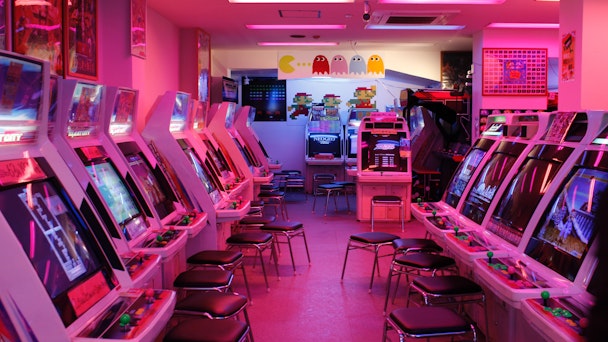‘Brands are guests in that space’: gaming isn’t a channel; it’s a community
When done right, gaming collabs can be dreamy. But brands that don’t know their place can flop. We gathered leaders from The Drum Network to discuss the brand basics of entering the virtual realm.

Know your audience and their cultural quirks, or risk looking uncool. / Matt Chris Pua
Sloppy brand partnerships can happen as a result of a lack of information or strategy – or both. In the gaming world, they stick out like a sore thumb, and there's no cheat sheet for getting it right. Luckily, our panel of Drum Network members and creative strategists are here to help with a few golden rules.
Co-creation: it can’t be one-way
We’re talking about gaming as a marketing channel, but Chris Wall, Ogilvy’s head of creative, rejects this definition completely: “We can’t call it that,” he says. “We’re talking about a community, a sandbox environment that is unique to the game. And then you’re talking about the culture that sits in and around it. So, I think if we dumb it down to a channel, we’re making a mistake immediately.”
Brands forget that people are immersed in those spaces already; the value exchange piece is crucial. As Charlotte Blackburn, creator operations director at gaming specialists Kairos Group, says, brands need to “lean on the gamers themselves to get an understanding for what the communities actually want.” Only then can brands get buy-in from consumers.
“Brands need to decide where they're committed, and how deep and how shallow they want to go. Because as we all know, if you get it wrong, you’ll get flamed immediately,” says Ogilvy’s Wall. “No marketer likes a brand that turns up looking like a dork at a party.”
Elevate, don’t interrupt
Where there’s a lack of additive value for gamers, brands come off as tone-deaf. And according to our panel, it’s hard to think of another area with such a rich history of brand missteps. “If we’re looking for an analogy for this, I can’t think of one where there has been such a bad history of people fumbling when coming to talk to the community,” remarks James Bennett, APAC director of creative technologies at Project Worldwide.
Lazily-executed partnerships perpetuate an existing cynicism not just about the marketing around gaming, but about gaming as a pastime. “There’s still a negative element around it, which is frustrating,” says Bennett. That laziness spills over into ill-timed activations and sours the overall experience. To this, Christie Clark, marketing manager at Found says: “One thing to absolutely not do is interrupt play.”
“It’s the real-life equivalent of running onto a [sports] pitch mid-game and holding up a banner saying ‘buy my product’,” she says. “We’ve seen brands do it before. [Brands should remember] that these are existing connections that are very strong, very deep.”
Our panel’s advice? “Don’t overestimate your value in that space; you’re a guest there,” says Alex Wilson, Amplify’s executive creative director. “Going back to utility, don’t interfere with the experience unless you’re genuinely bringing value to it. Don’t just think turning up is enough.” It’s about real-time value and real-time impact.
Advertisement
Stay in your lane
In the APAC region, where marketing through gaming is arguably better bedded-in than anywhere else, mobile gaming plays a much bigger role. “Personally, I’ve seen [people] in their 50s or even their 60s, riding on bicycles, with huge panels holding multiple phones,” says Shahdan Amir, strategist at Jack Morton. "And guess what they’re playing? Pokémon Go.”
While there’s no ‘right way’ to go about curating immersive, in-game brand experiences in this region per se, Amir insists that what really matters is understanding “exactly who it is the brand wants to target; what their interests are; how they respond; and what gaming means to them.”
Content created with:

Ogilvy UK
Ogilvy is all about depth and breadth - we have London's broadest and deepest skillset in communications our award-winning teams work fluidly across our core capabilities...
Find out more
Kairos Group
Led by experts with more than 100+ years of gaming and media industry knowledge, Kairos Group comprises multiple entities including Kairos Media, Kyma Media and...
Find out more
George P. Johnson
George P. Johnson is the world’s leading experiential marketing agency. We power brand experiences by enabling marketers to benefit from integrated experiential...
Find out more
Found.
WE ARE FOUND.
WE HELP BRANDS GET FOUND ONLINE.
We’re the digital performance experts who devise and deliver more opportunities for brands to...

Amplify
We solve problems.
At the heart of any problem is a person. A real person. What they think, believe, want or need. We help brands to connect with them and...

Jack Morton
No one sets out to be average. No one aspires to be ordinary. Jack Morton is an award-winning global brand experience agency that exists to reimagine what an experience...
Find out more
